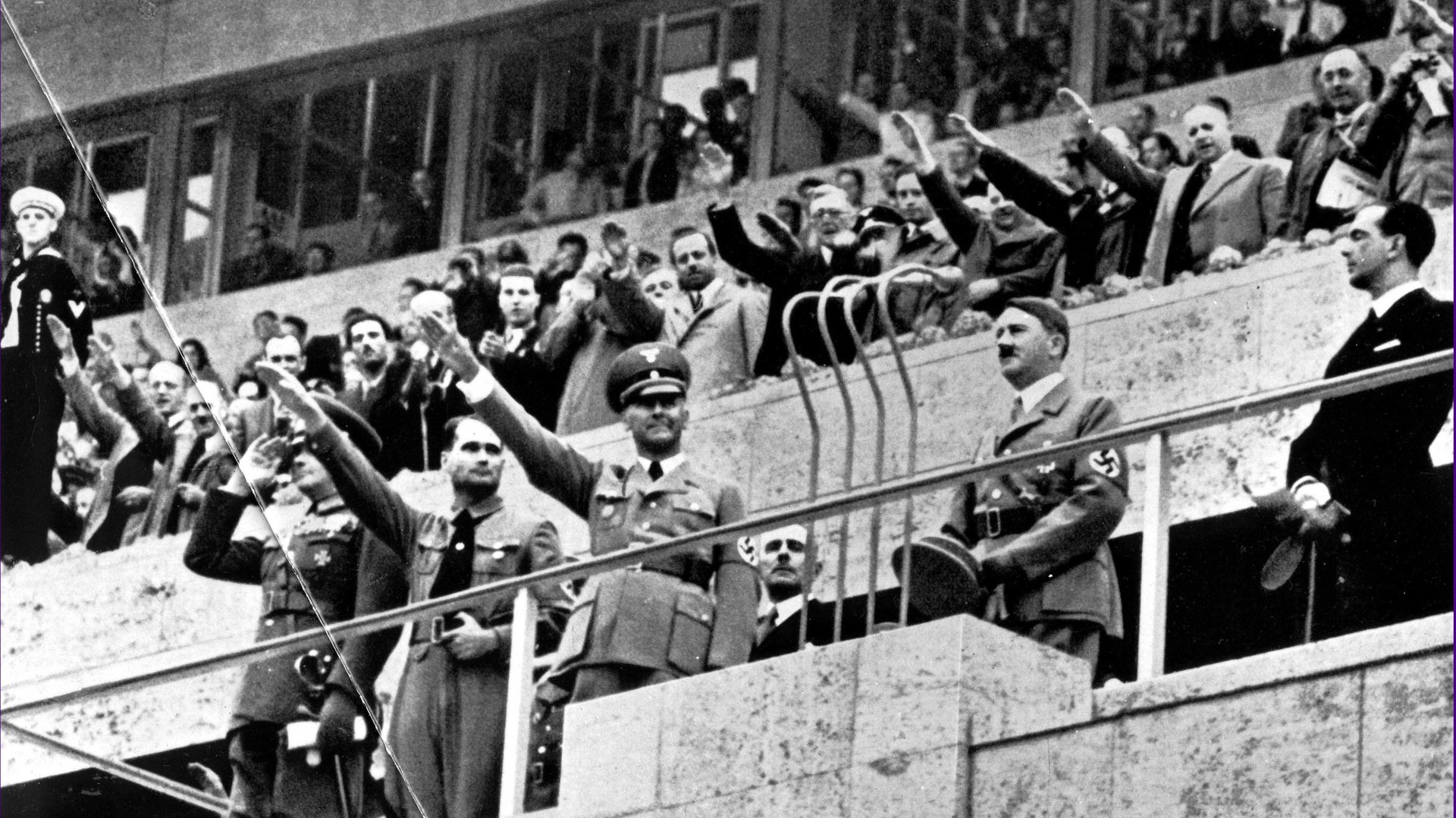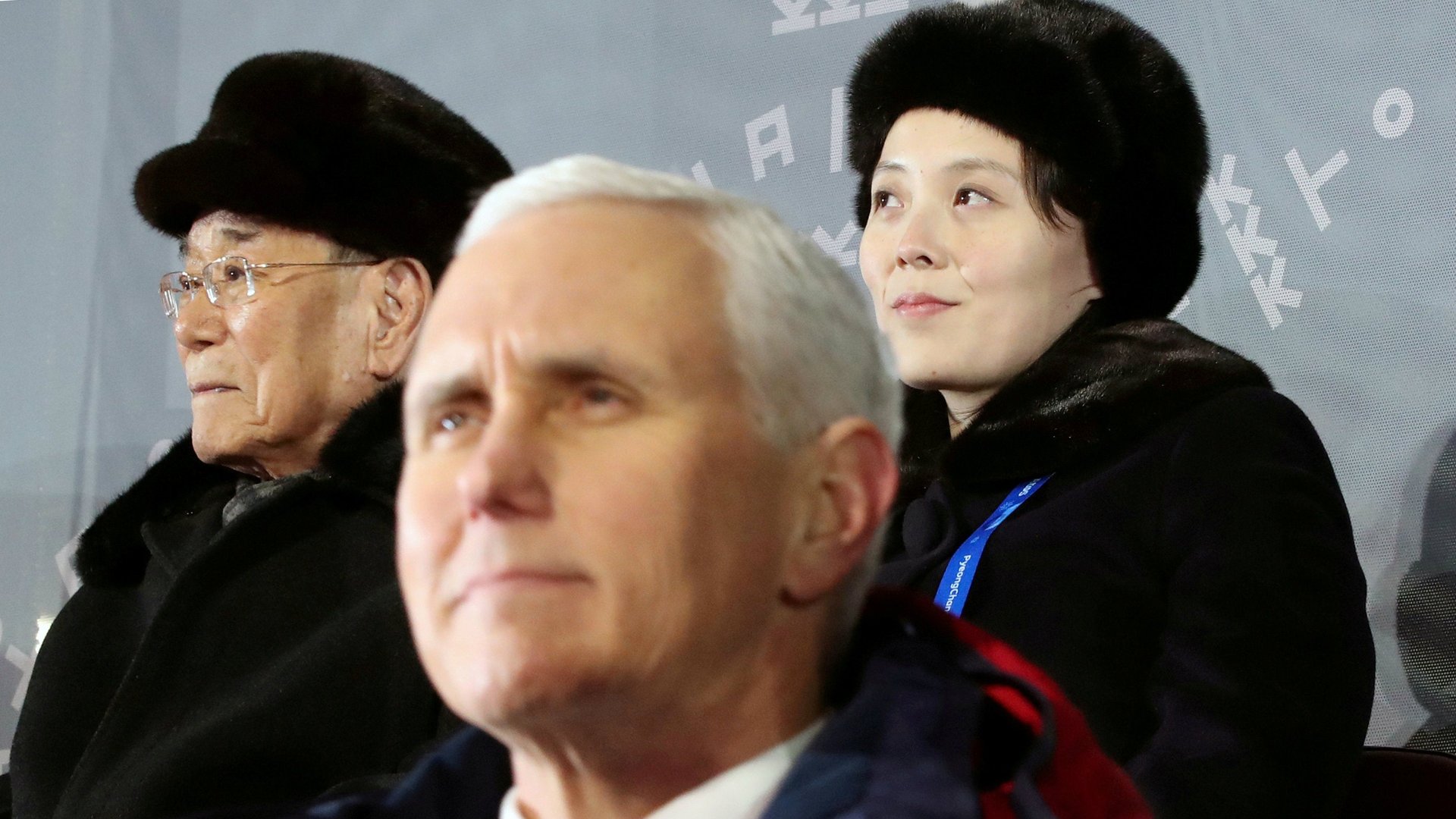The Nazis fooled the world for 16 days in 1936—and we’re allowing it to happen again
During just 16 days in 1936, Adolf Hitler reinvigorated the Nazi party in one of his most successful propaganda coups—hosting the Olympic games in Berlin. Using the sporting event as a platform to shape the party’s image in a more favorable light, Hitler had “every reason to be satisfied” after he and Nazi officials charmed their global counterparts, the historian Oliver Hilmes told Quartz.


During just 16 days in 1936, Adolf Hitler reinvigorated the Nazi party in one of his most successful propaganda coups—hosting the Olympic games in Berlin. Using the sporting event as a platform to shape the party’s image in a more favorable light, Hitler had “every reason to be satisfied” after he and Nazi officials charmed their global counterparts, the historian Oliver Hilmes told Quartz.
“In the 1930s, Nazi Germany had a major image problem after a series of provocations and broken promises,” he says. “But the Olympic games played a major role is showing his ‘friendly face’ and presenting the country as an open-minded and tolerant one, even as a friendly member with the wider community.”
This was quite a feat because only months before the Olympics, the unified forces of Nazi Germany, the Wehrmacht, basically wiped its feet with the Treaty of Versailles and marched into the demilitarized zone of Rhineland.
This is worth remembering today. After a year in which North Korea put the rest of the world on edge with its frequent missile tests and chilling propaganda, there was much cooing over the authoritarian state marching in unison with South Korea at the Winter Olympics, and the presence of some hermit state officials. Meanwhile, two countries with horrendous track records for human rights and corruption, Russia and Qatar, are gearing up to host football World Cups in 2018 and 2022.
In his 2018 book, Berlin 1936: Sixteen Days in August, Hilmes detailed the extraordinary impact that the Olympic games had on re-energizing the Nazi party. Focusing on the stories of people who attended, “everyone from the normal person to diplomats, to socialites to prostitutes,” Hilmes detailed how the Nazis were able to use a major sporting event to manipulate the minds of the masses.
The Olympic games was one of the many moments the Nazis successfully cultivated adoration from the masses, it marked an “absolute high point of respect in Germany and amongst the people,” Hilmes says. “It allowed Hitler to show his qualities as a leader, a father of the nation. While he of course had meetings [with officials from around the world], he only spoke once in those 16 days and it was only one sentence.”
That was enough to present the Third Reich in a good light amid the “spectacle and choreography” of the games that “worked very well” in helping propaganda minister Josef Goebbels present the Berlin games as a “festival of joy and peace.”
The Olympics allowed the Nazis to pretend that they were friendly and inclusive. This, of course, was far from the truth. After the African-American athlete Jesse Owens won four gold medals, Goebbals wrote in his diary: “White humanity should be ashamed.” Meanwhile, the Nazis were building a huge new concentration camp, Sachsenhausen, nearby.
Hitler and the Nazi party’s authority was most bolstered by the presence of the US, the UK, France, and other powerful nations at the Olympics. As detailed in his book, people were captivated by Nazi officials. Sir Robert Vansittart from the British Foreign Office said of Goebbels, “I liked him and his wife at once.” An American tourist bypassed security to try to kiss Hitler on the cheek—“I simply embraced him because he appeared so friendly and gracious,” she recalled.
If those countries and citizens didn’t go to the games in Berlin, Hitler may not have had the chance to show off on such a prominent stage. But they did. And now it seems history is repeating itself.
North Korea, Russia, and Qatar’s chance to shine

The United Nations, as well as the NGO Human Rights Watch, have detailed how the North Korean government routinely commits gross human rights violations against its citizens, including enslavement, torture, imprisonment, rape, and forced abortion. The authoritarian state has also provoked its neighbors and adversaries with its frequent missile tests.
Perhaps even more than in Hitler’s time, large and internationally visible sporting events in the age of 24-hour cable news and social media can be incredibly advantageous PR exercises for authoritarian regimes. North Korea brought almost 500 of its citizens to South Korea for the Winter Olympics, and when Kim Yo Jong, the younger sister of Kim Jong-un, landed on South Korean soil—the first member of ruling family to visit since the Korean war—it was hailed as a diplomatic high point (paywall) for both North and South Korea. Kim Yo Jong didn’t need to talk or give a speech for people and the media to fawn over her.
Hilmes called it “naive” to believe the Olympics could bring North and South Korea closer.
“If you think back to the Berlin Games in 1936, that’s what the British and Americans thought,” he said. “They thought, ‘maybe we’ve cured Hitler from being aggressive,’ but the opposite was the truth. Remember, while he was publicly sitting there quietly during those 16 days, he gave the order for further militarization.” Within four years, many of the nations at the games were embroiled in World War II.
With the Olympics over, this remains an issue. The Fédération Internationale de Football Association (FIFA) World Cups in 2018 and 2022 are slated to take place in countries with horrendous track records of human rights: Russia and Qatar.
Of course, much has changed in the world since 1936, Hilmes said. Still, “it’s ridiculous,” he said: “Qatar, with no huge soccer background and extreme heat, huge corruption, homosexuality is illegal, supports international terrorism, is able to host the World Cup. Same with Russia.”
Investigations are underway into the whether corruption played a part in the FIFA votes to give Russia and Qatar the honor of hosting a World Cup. But assuming the events go ahead as planned, Hilmes says, other countries have a question to ask themselves: “Why should liberal and democratic countries have any business being there?”
“Back in 1936, if the US, UK, and France denied attending the games in Nazi Germany, the event would’ve been much smaller and its political strategy would’ve run into a wall,” Hilmes says. “It would not have worked out so well for them. So it’s kind of a responsibility of Americans and British people and the rest of the international movement to ask why they take part in such events.”